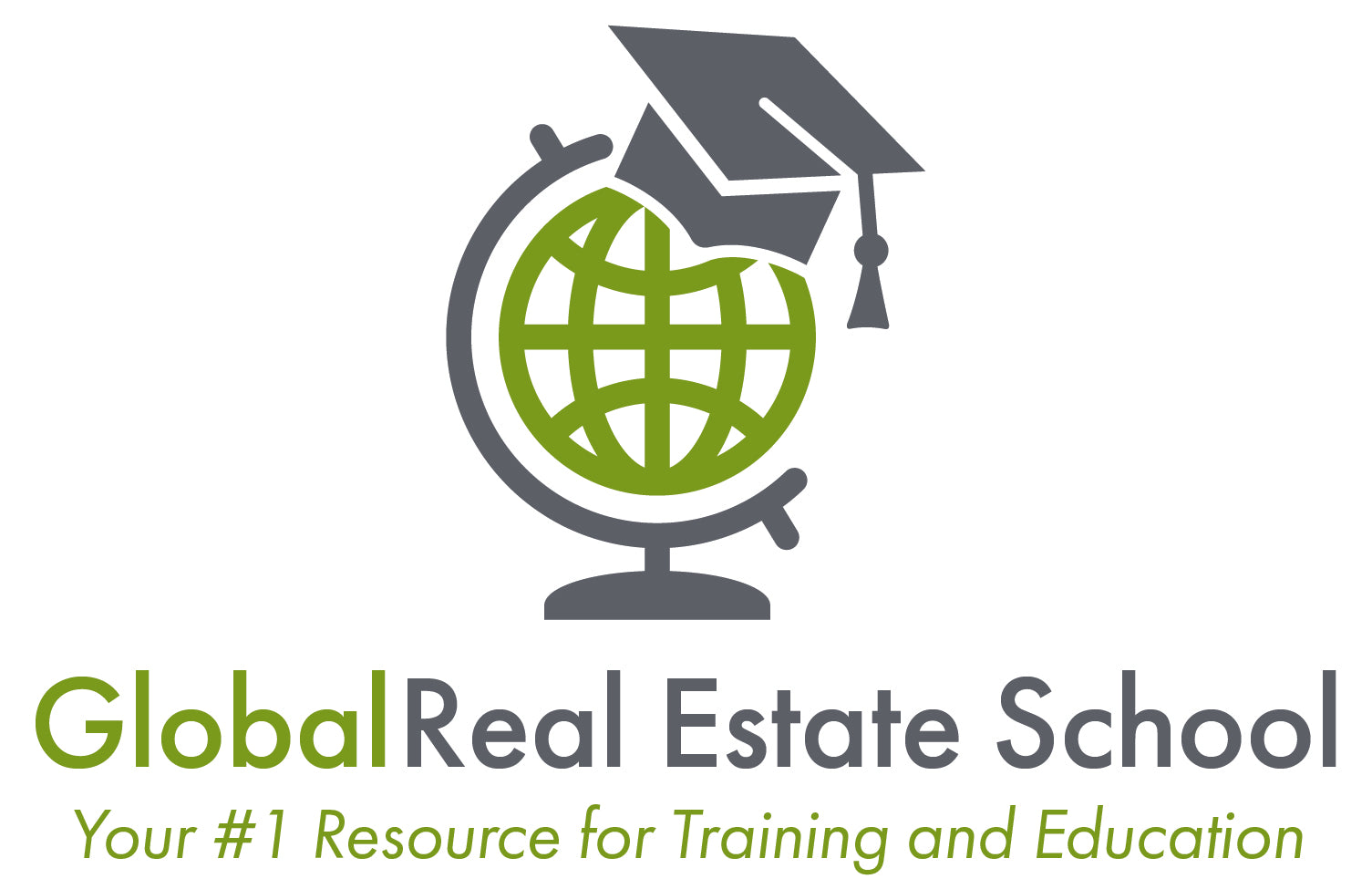Real Estate School Explained: Costs of Modern Programs}
What Courses Are Available at a Real Estate Institution? A Complete Guide for Aspiring Agents
Ambitious genuine estate agents have a diverse range obviously available to enhance their knowledge and abilities. These offerings vary from fundamental classes in realty principles to specialized training in areas like residential property administration and commercial real estate. Comprehending the different academic paths can be essential for success. What necessary subjects and strategies will these courses cover, and how might they form a representative's profession?
Comprehending the Fundamentals: Property Principles
The structure of genuine estate knowledge depends on understanding its principles. These concepts encompass vital ideas that govern the buying, selling, and administration of buildings. Secret topics include property possession, land usage, and the various legal rights related to ownership. Understanding the distinctions between domestic, industrial, and industrial buildings is important, as each category has special market dynamics.
Furthermore, trainees learn regarding market evaluation, which includes examining property worths and trends to make enlightened choices (Real Estate School). Realty concepts additionally cover the value of contracts and the lawful framework that supports property deals. Experience with funding choices, such as car loans and mortgages, is important for leading the economic facets of property. In general, a strong grasp of these principles gears up hopeful representatives with the foundational knowledge needed to succeed in the competitive property industry, paving the means for additional specialized training and licensing

Licensing Needs and Exam Prep Work
Aspiring property representatives need to navigate particular licensing needs to practice legitimately in their particular states. These demands typically include completing an assigned number of hours in pre-licensing education and learning, which covers vital subjects such as property regulation, principles, and residential or commercial property monitoring. Prospects should additionally pass a state exam that assesses their understanding and understanding of these topics.
Test prep work is crucial for success. Numerous property institutions offer test prep courses that offer technique inquiries, study overviews, and testimonial sessions. These sources aid prospects familiarize themselves with the exam layout and content. Furthermore, joining research study groups or making use of on-line systems can boost learning via joint review and discussion.
As soon as the examination is passed, agents must obtain their license through the state's realty compensation, usually come with by history checks and fees. Fulfilling these licensing requirements guarantees that representatives are geared up to serve clients successfully and fairly in the property market.
Specialized Courses: Property Administration
Comprehending the intricacies of building management is important genuine estate specialists looking for to enhance their proficiency in this specific field. Residential or commercial property monitoring programs supply agents with useful insights into the day-to-day operations of taking care of residential and business residential properties. These courses typically cover crucial subjects such as renter relations, lease agreements, and building maintenance.
Additionally, aiming home supervisors learn more about monetary monitoring, consisting of budgeting and rent out collection techniques, in addition to lawful duties associated with renter rights and building regulations.
Programs may additionally discover marketing strategies for drawing in occupants and devices for property monitoring software program that enhance procedures. By finishing specialized home administration training courses, realty experts can better equip themselves to handle the difficulties of taking care of properties efficiently, eventually bring about improved client fulfillment and service development. This understanding is important for those intending to stand out in the affordable realty market.
Industrial Genuine Estate: A Different Perspective
Industrial genuine estate runs under special market dynamics that distinguish it from houses. Understanding financial investment methods specific to this sector is important for success, as is acknowledging the significance of networking possibilities readily available to experts. These elements with each other shape an all-encompassing method to traversing the intricacies of industrial realty.
Special Market Dynamics

Investment Methods Explained
Various investment methods exist within the domain name of industrial property, each customized to meet certain economic objectives and market conditions. One usual method is value-add investing, where capitalists obtain underperforming residential properties, boost their worth via improvements, and ultimately increase rental earnings. An additional method is core investing, concentrating on maintained, high-grade properties in prime areas that provide stable capital. Furthermore, opportunistic investing entails higher threat, targeting homes needing significant redevelopment or in arising markets. Realty financial investment trusts (REITs) use an extra easy approach, permitting people to purchase a varied profile of commercial buildings. Finally, crowdfunding platforms have emerged, allowing small financiers to participate in larger business bargains, equalizing accessibility to the business actual estate market.
Networking Opportunities Available
In the domain of realty investing, developing a robust expert network can substantially boost opportunities for success. Networking possibilities are plentiful at real estate schools, where hopeful representatives can get in touch with industry specialists, trainers, and fellow trainees. Workshops, seminars, and guest talks commonly include skilled agents and brokers who share understandings and experiences, offering important contacts. Numerous colleges additionally facilitate regional meetups and networking occasions, urging students to engage with the wider genuine estate area. Additionally, on the internet platforms and discussion forums related to these programs enable for continuous communication and partnership. By leveraging these opportunities, students can foster partnerships that may cause mentorship, collaborations, and prospective task placements, eventually assisting in their professional advancement within the competitive business next real estate field.

Realty Investment Approaches
Realty investment techniques vary substantially, including approaches such as rental property financial investments, flipping houses, and engaging with Realty Investment Company (REITs) Each method presents distinct chances and threats that financiers should very carefully consider. Understanding these options is crucial for anyone seeking to construct an effective property portfolio.
Rental Home Investments
Lots of capitalists find rental property investments to be an engaging strategy for building wealth and creating easy earnings. This approach involves acquiring business or property properties to lease to renters, making sure a steady capital. Successful rental residential property financial investments need detailed marketing research, evaluating home values, and comprehending regional rental demand. Financiers commonly gain from tax obligation benefits, such as depreciation and home mortgage interest deductions. In addition, residential or commercial property management abilities are important for keeping occupant connections and guaranteeing prompt rental fee collection. Lasting recognition of residential or commercial property worths can further boost a financier's portfolio. In general, rental home investments can give a secure income and add to economic security, making them an eye-catching choice for several in the property market.
Flipping Residences Strategies
Flipping residences has arised as a preferred method genuine estate financiers looking for quick returns on their investments. This method involves purchasing underestimated homes, making necessary improvements, and marketing them at a greater cost. Successful house flippers typically conduct complete market study to determine promising communities and properties with possibility for appreciation. They often focus on aesthetic upgrades, such as bathroom and kitchen remodels, to enhance appeal without spending beyond your means - Real Estate School. Additionally, understanding financing choices and managing spending plans More Help are necessary for making best use of earnings. Time is essential in this strategy, as extended improvements can wear down earnings margins. Ultimately, turning homes calls for a mix of market understanding, renovation abilities, and economic acumen to be successful in an affordable property landscape
REITs and Diversification
Although straight residential property financial investment can yield high returns, Realty Investment Trusts (REITs) supply a compelling alternative that enables capitalists to diversify their profiles without the intricacies of taking care of physical residential properties. REITs are companies that own, operate, or financing income-producing property across various industries, including household, industrial, and commercial residential properties. By buying REITs, individuals can obtain direct exposure to real estate markets without the need for considerable resources or straight administration obligations. This financial investment lorry also supplies liquidity, as shares can be conveniently acquired and marketed on stock market. In addition, REITs typically pay rewards, providing a routine revenue stream. Generally, incorporating REITs right into a profile can enhance diversification and mitigate risks related to standard property financial investments.
Continuing Education And Learning and Expert Development
As the property market progresses, professionals need to engage in proceeding education and learning and expert advancement to stay affordable and notified. This ongoing discovering is crucial for adjusting to changes in laws, technology, and market fads. Genuine estate Recommended Site colleges provide various programs designed to enhance abilities and understanding, consisting of sophisticated negotiation techniques, home monitoring, and advertising and marketing techniques.
Numerous states need licensed agents to finish a set number of continuing education hours to maintain their licenses. These training courses usually cover fundamental subjects such as principles, fair real estate policies, and threat monitoring.
In addition, industry workshops and workshops offer networking opportunities, allowing representatives to get in touch with peers and sector leaders. By joining these instructional programs, real estate specialists can guarantee they stay skillful and receptive to client needs, eventually resulting in occupation development and success in a vibrant marketplace.
Often Asked Questions
What Is the Typical Duration of Property Courses?
The regular period of property courses varies, usually ranging from a couple of weeks to numerous months. Elements influencing this duration consist of program web content, delivery approach, and state needs, impacting ambitious representatives' academic timelines.
Are Online Courses Available for Real Estate Education?
Yes, numerous on-line training courses are available genuine estate education and learning. These programs supply versatility and access, enabling people to learn at their very own speed while covering essential subjects essential for acquiring real estate licenses and understanding.
Just How Much Do Property Courses Typically Price?
Realty courses generally range from $200 to $1,500, depending upon the organization and course length. Additional costs for products, tests, and state licensing may likewise apply, adding to the total cost of education.
Can I Take Realty Courses Part-Time?
Yes, people can take genuine estate programs part-time. Numerous academic establishments provide versatile organizing options, enabling hopeful representatives to balance their research studies with various other commitments, making it available for those with active way of lives.
What Careers Can I Seek After Finishing Real Estate Courses?

These offerings range from foundational classes in actual estate concepts to specialized training in locations like building administration and industrial genuine estate. Real estate concepts additionally cover the value of contracts and the legal framework that sustains genuine estate transactions. While many real estate specialists concentrate on residential markets, the dynamics of business real estate present unique difficulties and chances that need a various strategy. Real estate investment techniques vary substantially, incorporating techniques such as rental residential or commercial property financial investments, flipping homes, and involving with Real Estate Investment Trust Funds (REITs) Straight home investment can yield high returns, Real Estate Investment Trust Funds (REITs) use a compelling choice that enables financiers to expand their profiles without the complexities of handling physical properties.